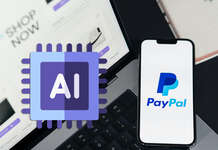As technology evolves, those who work in technology must also keep up. This includes improving knowledge about mobile applications.
Without a doubt, becoming skilled in app development requires time and effort. It is important to work hard and continually acquire new knowledge to become a professional. With the mobile app development company showing no signs of slowing down, mastering the skills of the most in-demand apps is a must for those who want to stay ahead.
Mastery of mobile application programming languages
Programming is the basis on which the creation of mobile applications is based, which makes it an essential element for their development. As an application developer, you need to have a strong command of programming languages.
The choice of programming language depends on the platform for which you want to develop:
Android Development
Learning Java and Kotlin is essential for anybody hoping to create Android apps. Java is the official language used for development on Android, while Kotlin is rapidly gaining popularity due to its modern features and ease of use.
Although Java has long been a favorite, Kotlin has emerged as a modern and concise alternative. Kotlin’s security features and smooth integration with current Java code are opening up new possibilities for a fun and productive development experience.
iOS Development
When it comes to iOS Development you will primarily use Swift, with a bit of Objective-C. Swift is Apple’s newest programming language, and because of its robust features and simple syntax, it has rapidly become a favorite among developers. Objective-C still has its place, especially when it comes to older iOS code.
You will become a more well-rounded iOS developer and have a better chance of being hired if you are proficient in both Swift and Objective-C.
You can gain professional knowledge of all programming languages through a mobile app developer course. By working on real projects during your internship, you will be able to put what you have learned into practice. Another advantage for mobile developers is having familiarity with different programming languages and technologies:
JavaScript: Ideal for the development of hybrid or cross-platform applications.
HTML and CSS: Used in the development of hybrid applications.
C/C++: Useful for hardware interface and low-level performance optimization on certain devices.
SQL: Essential to manage and consult databases.
Python: Good for server-side components, data analysis, and scripting jobs.
Ruby: Beneficial for mobile developers working with server-side components or backend services.
PHP: Ideal for mobile app developers working with server-side scripts or backend services.
SwiftUI and Combine (iOS): Perfect for creating user interfaces and handling asynchronous operations.
Android Jetpack (Android): Provides modern tools and libraries to simplify application development.
Dart (Flutter): Core language for building Flutter applications.
Specific and Cross-platform Capabilities
With 2.6 million Android applications and 1.85 million iOS applications, both systems are taking the market by storm. Differentiating between Android and iPhone users is typically only significant for specific app categories and companies. But as the world becomes more connected, being able to develop apps that work seamlessly across multiple operating systems has become a desirable skill for mobile app developers.
How is it done? Competent mobile app developers produce code that runs on several platforms using cross-platform frameworks like React Native and Flutter. These frameworks make it possible to construct applications more quickly and maintain them more easily, thus knowing how to use them is an invaluable asset.
Whether they start on Android, iOS, or Windows, successful apps end up having to be ported to the other two. Coding native applications for one platform makes porting to others difficult and may require a different team of engineers.
Therefore, as a mobile app developer, you must be familiar with cross-platform development tools and practices to make your apps future-proof. For example, Xamarin, created by Microsoft, is a powerful cross-platform tool that allows developers to create applications for Android, iOS, and Windows using C#. Other well-liked frameworks for developing cross-platform apps are React Native and Flutter.
User-friendly Interface Design
In today’s world of endless options and tough competition, businesses are looking for mobile app developers who also have a keen eye for user experience (UX) and user interface (UI) design.
In addition to programming knowledge, having a good sense of aesthetics and the ability to create an intuitive and easy-to-use interface is crucial for mobile application development. After all, the design of an app is what captures users’ attention and keeps them engaged.
To excel at UI/UX design, you must have a solid understanding of:
- Theory of color
- typography
- principles of design
- visual hierarchy
Along with design tools like Adobe XD or Figma, you should also be familiar with prototype tools like Marvel, InVision, and Proto.io. Being an expert in UI/UX design can help you stand out in the cutthroat app development market.
Knowledge of Agile Development and Scrum Management
The preferred project management approach in the software development industry is called Agile. And within Agile is Scrum, an approach that emphasizes collaboration, transparency, and continuous improvement.
Knowing agile development techniques shows that you are a qualified mobile developer who fits into the fast-paced mobile industry. Scrum, in particular, is ideal for mobile app development projects due to its incremental and iterative approach, allowing for quick releases and feedback.
Participating in training programs focused on agile development and Scrum management is a great way to learn the practical application of these concepts. By mastering Agile and Scrum, you will become a valuable asset to any mobile app development team.
Handling large amounts of data
Apps run on data; customers are defined by data; and data is what you collect and how you achieve your final results. Therefore, having a good amount of data is crucial. And to ensure this, you’ll need talented data engineers who can create the most efficient databases and repositories.
Mobile application development encounters data in various forms and from different sources. As an application developer, it is essential to understand these sources and interact with them perfectly.
Additionally, if you use database management knowledge in your application development process, you will achieve faster and more efficient performance. Databases are the backbone of any application and if you know how to manage large amounts of data, you can offer a better user experience.
How is this knowledge learned? Since SQL is the most common language for maintaining and accessing databases, developers of mobile apps need to be proficient in it. It’s worthwhile to learn about the strong database management features of other languages, such as Python and Ruby.
If you plan to build enterprise applications that handle massive amounts of data, you should also familiarize yourself with NoSQL databases like MongoDB and Cassandra. These databases are highly scalable and flexible, making them suitable for handling large data sets.
Cybersecurity
Furthermore, it shows that programming is not the only skill you should possess. Remember that you are creating an application that will end up being used by thousands, if not millions, of people. With data privacy and security becoming a major concern for both businesses and users, having cybersecurity knowledge is a valuable asset.
According to a global consumer survey, fraud is the most concerning cybercrime problem in mobile applications. A staggering 55.7% of respondents expressed concern about this particular online threat.
Being a mobile app developer means constantly fighting security issues, which can be a real headache for a CEO. You have to help them safeguard customer privacy, fortify their systems against compromise, and ensure that all records, checks, and balances are in place. It’s like playing an endless game of risk management.
Reducing that risk is the key. You can never be too safe on the Internet, so that means collaborating with a group of mobile app developers who are knowledgeable about security standards and have access to the newest best practices and technologies.
Testing and Quality Control
All mobile apps undergo rigorous testing and quality assurance (QA) processes before being released to the public. Ensuring that an application is error-free and meets the standards and requirements set by the customer can take weeks or even months.
Testing involves finding errors or glitches in the application, while QA ensures that the application works as intended and meets all specifications. These processes ensure that the application works correctly, detecting and fixing problems before users encounter them, which is important in such a competitive market.
To master debugging, you must be familiar with various testing techniques and tools. It would be best if you also knew in depth the different types of tests, such as:
- Functional Testing
- Integration Testing
- User Acceptance Testing
Additionally, mobile devices have different configurations, so extensive testing on multiple platforms and screen sizes is essential for a consistent user experience.
Artificial Intelligence (AI) and Machine Learning (AM)
Mobile technology is evolving with each passing year, and AI and ML are having a major impact on the industry. They are not just buzzwords but have real applications in mobile app development.
With the rise of chatbots, voice assistants, and predictive algorithms, having a basic understanding of AI and ML is a valuable skill for mobile app developers. These technologies can improve the user experience by offering personalized recommendations or providing effective customer service.
Plus, integrating AI into your app can unlock the potential for smarter, more intuitive, and personalized user experiences. Imagine the power of natural language processing, image recognition, recommendation systems, and predictive analytics seamlessly improving every interaction.
If you are convinced of the benefits of building an AI application, why not arrange a call with an expert? AI consulting service provider? Discuss your app requirements with them and embark on the exciting journey of creating your AI-powered app.
Clear Communication and Team Collaboration Skills
Mobile developers are not isolated coders. They work closely with various teams and departments, coordinating with marketing teams and presenting developments to clients and stakeholders.
Since mobile application development services outsource their mobile applications, you must also excel in communication in English. The Philippines, for example, has become a popular destination for outsourcing app development due to its high level of English and cultural compatibility with Western countries.
Furthermore, collaboration skills are vital for the long-term scalability and maintenance of mobile applications. One of these indispensable tools in mobile development is Git, which makes it easy to track changes in the code base over time, allows isolated development through branching, effortless merging of changes, and easy rollback in case of problems.
To encourage collaboration, project management platforms like JIRA and Trello, communication tools like Slack and Microsoft Teams, and code review tools like GitHub and Bitbucket play essential roles in the mobile development process.






